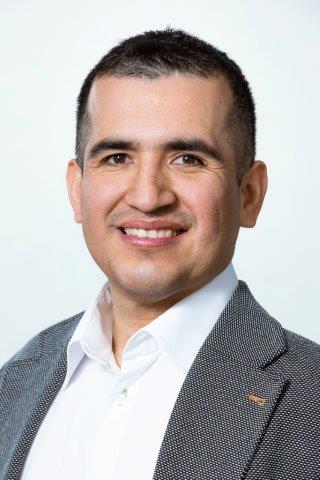COBRAcable
Project Description
(Animation's source: osp.energinet.dk/Flash/COBRA/cobra_med_vind.swf)
The COBRAcable will be a 325 km long submarine electricity cable between Eemshaven, in the Netherlands and Endrup, in Denmark. In 2019, the COBRAcable will be able to transport up to 700 Mega Watts of power between these two European countries. The connection will confer significant benefits to the operation of the power systems in both countries: it fosters the grid integration of renewable energy sources and extends the import and export capacity for both countries. The COBRAcable will be based on high-voltage direct-current (HVDC) transmission using voltage sourced converter (VSC) technology, which technically allows interlinking an offshore wind park in the future. The European Union assigned COBRAcable the status of project of common interest, and hence supports the investigation of the technical measures and procedures that need to be taken to implement such a multi-terminal connection.
This project consists in academia-industry collaboration between Aalborg University, Delft University of Technology, Energinet.dk and TenneT TSO BV, with the objective of operating the COBRAcable as a fully functional multi-terminal VSC-HVDC grid. Several of the main technical issues hindering the implementation of the technology will be solved and solutions proposed for a more efficient operation of the COBRAcable. TU Delft does research on the VSC control aspects concerning the impact on the dynamic performance of the AC grids connected to COBRAcable.
Modular Multilevel Converter Technology
(Animation's credits: D. Sanchez & A. Perilla)
The modular multilevel converter (MMC) is a new generation of VSC technology that is being used in most of the newest high-voltage direct-current (HVDC) projects around the world. The AC/DC and DC/AC power conversion process is generated by controlling the switching actions of the electrostatic elements located inside of the converter unit. As the number of capacitors (submodules) can be increased (scalability) this technology can potentially generate less harmonic distortion and higher reliability if compared against the previous VSC technologies for power system applications.
Project Team:

A. Perilla
Arcadio Perilla was born in Caracas (Venezuela) in 1987. He received his Electrical Engineer diploma from Simon Bolivar University in 2012 and his M.Sc. degree in electrical engineering from Université Lille 1 in 2015. He has worked developing Governor Systems modelling at Electrificación del Caroní C.A. (EDELCA). During his master studies, he was focused on the modelling and state space representation of Modular Multilevel Converters (MMC) at L2EP. He is currently pursuing a PhD degree in Delft University of Technology toward the Multi-terminal expansion of the COBRAcable (MMC based) project. His current research interests include: power system stability analysis with high penetration of renewable energy sources and modelling and control of modular multilevel converters.
For further information, please contact:
COBRAcable Videos
COBRAcable shorelanding Eemshaven
COBRAcable
Better Together: COBRAcable
COBRAcable Cable Pull Fano Denmark Film
COBRAcable first pile
Key Publications
- Perilla, Arcadio; Rueda Torres, Jose Luis; Rakhshani, Elyas; Irnawan, Roni; Faria da Silva, Filipe; van der Meijden, Mart; Bak, Claus Leth; Alefragkis, Alex; Lindefelt, Anna: 'Directional derivative-based method for quasi-stationary voltage support analysis of single-infeed VSC-HVDC units', High Voltage, 2020, DOI: 10.1049/hve.2019.0420
- Torres, J. L. R., Perilla, A., Rakhshani, E., Palensky, P., Van Der Meijden, M. A. A. M., & Alefragkis, A. (2019). MVMO-based tuning of Active Power Gradient Control of VSC-HVDC links for Frequency Support. In 2nd International Conference on Smart Grid and Renewable Energy, SGRE 2019. doi.org/10.1109/SGRE46976.2019.9020696
- Perilla, A., Rueda Torres, J. L., van der Meijden, M. A. M. M., Alefragkis, A., & Lindefelt, A. M. (2018). Analysis of a power factor regulation strategy for an embedded point-To-point MMC-HVDC system. In 2018 IEEE International Energy Conference, ENERGYCON 2018 (pp. 1-6). IEEE. doi.org/10.1109/ENERGYCON.2018.8398845

